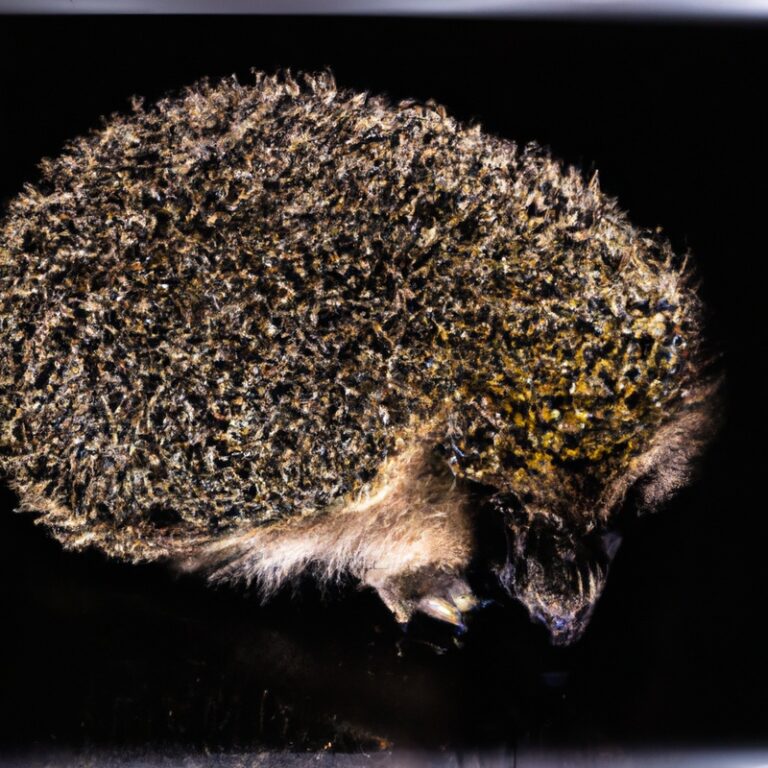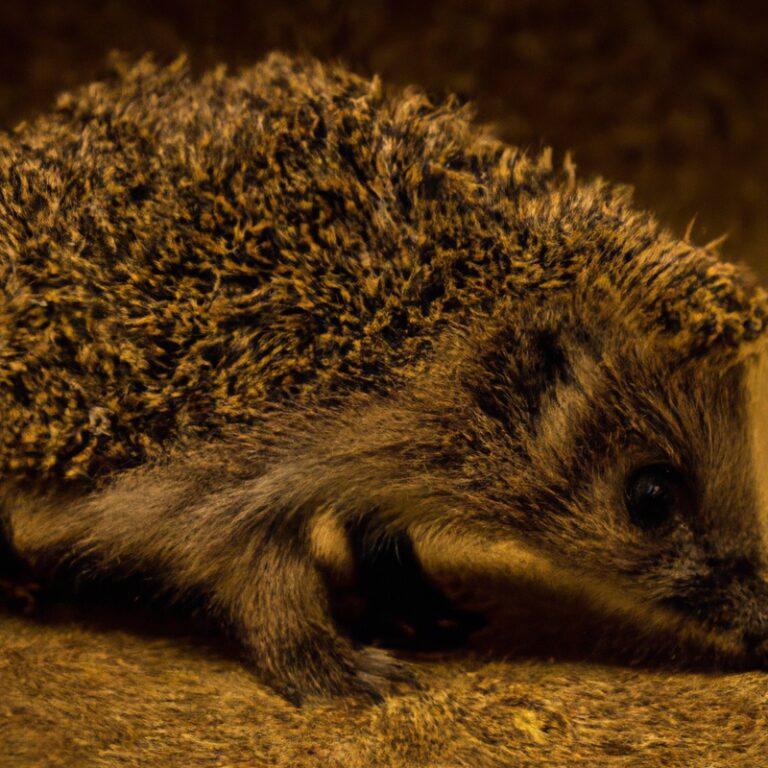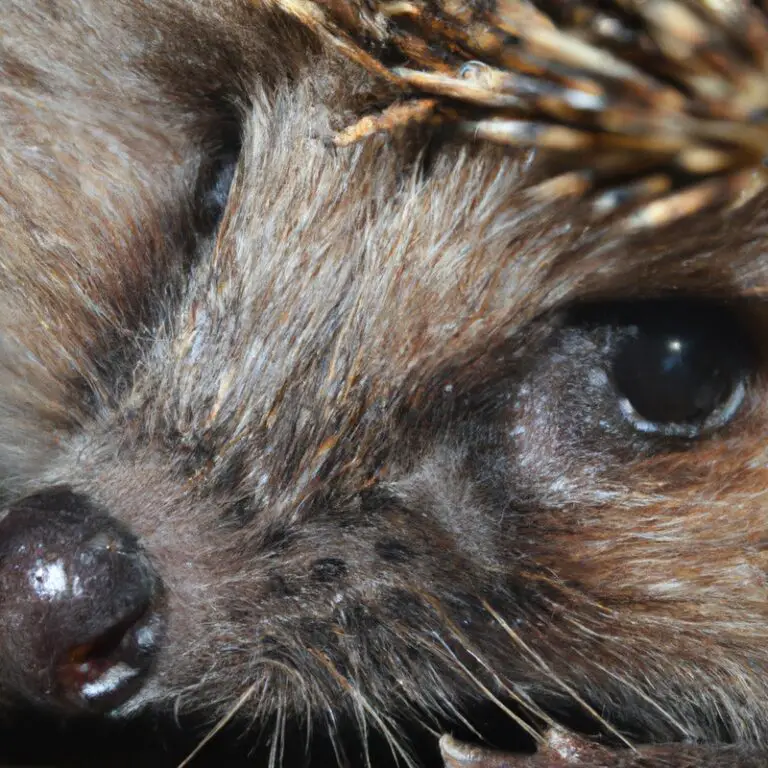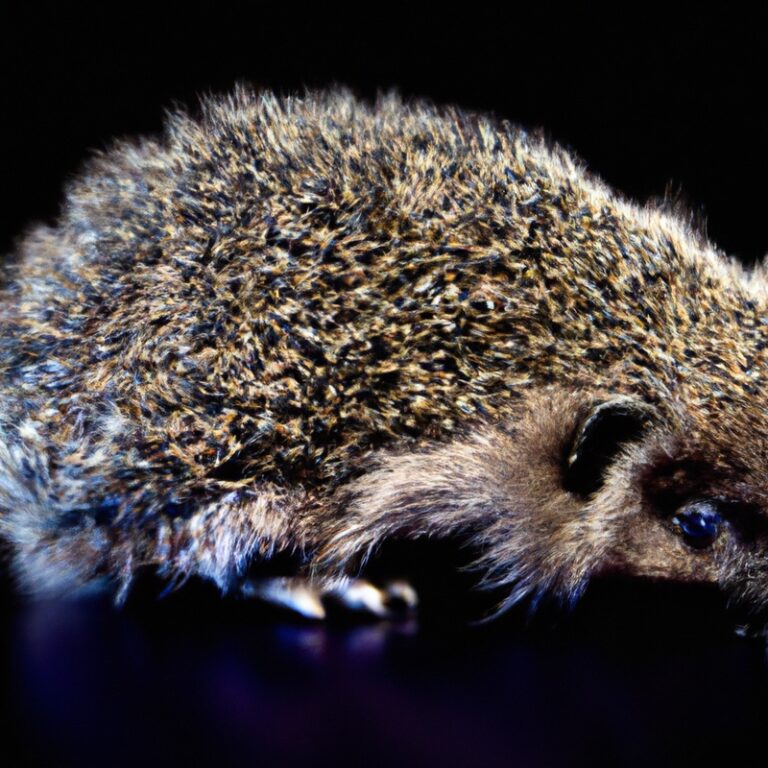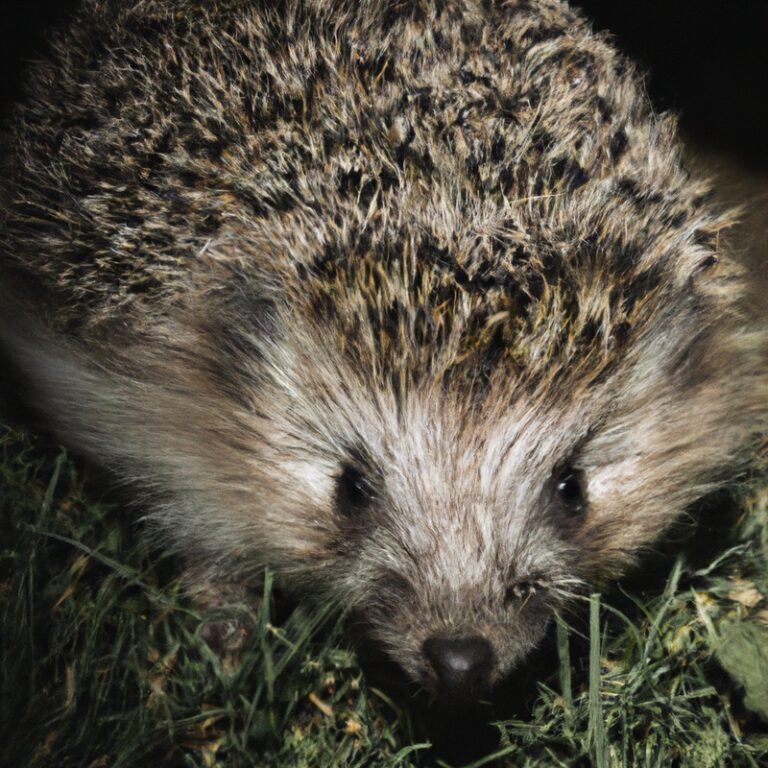How Do Hedgehogs Affect Garden Ecosystems?
Key Takeaways:
- Hedgehogs play a vital role in maintaining garden biodiversity by controlling pests such as slugs and insects.
- Hedgehogs help with pollination by dispersing the seeds of plants as they travel through gardens.
- Creating hedgehog-friendly habitats in gardens can enhance ecosystem resilience and support overall biodiversity.
- Encouraging the presence of hedgehogs in gardens can contribute to sustainable gardening practices and natural pest control.
Are you ready to uncover the hidden secret to a thriving garden ecosystem?
Look no further than the humble hedgehog.
These spiky creatures may seem small and unassuming, but they play a crucial role in maintaining the delicate balance of your garden.
From their natural behavior and predatory instincts to their diverse diet and foraging habits, hedgehogs have a significant impact on the health and vitality of your plants and wildlife.
Join me as we explore the positive and negative effects of hedgehogs in gardens and discover how to manage their impact to create a harmonious coexistence.
| Aspect | Impact on Garden Ecosystems |
| Biodiversity | Hedgehogs can help control pest populations, particularly slugs and snails, which can protect plants and promote overall biodiversity in the garden. |
| Pollination | While hedgehogs do not directly contribute to pollination, their presence may attract pollinators such as bees and butterflies, thus aiding in the pollination process. |
| Seed Dispersal | Hedgehogs may unintentionally help in seed dispersal as they move around the garden, transferring seeds on their fur or through their digestive system. |
| Soil Aeration | Hedgehogs that burrow in the garden can help aerate the soil, promoting better water infiltration and nutrient absorption for plant roots. |
| Predator-Prey Balance | By feeding on certain pests, hedgehogs can help maintain a balance between predator and prey populations in the garden, preventing an overabundance of certain species. |
| Food Sources | Gardens can provide a variety of natural food sources for hedgehogs, including insects, fruits, and plants, supporting their diet and contributing to their overall health. |
| Damage to Plants | Hedgehogs may occasionally cause damage to plants by trampling over them or rooting around in soil, but this impact is typically minimal compared to their positive contributions. |
| Habitat Loss | Loss of suitable habitat, such as hedgerows or natural foliage, can negatively affect hedgehog populations and their ability to contribute to garden ecosystems. |
Role of Hedgehogs in Garden Ecosystems
Hedgehogs play a vital role in garden ecosystems. They help control pests and promote biodiversity.
Natural behavior of hedgehogs
Hedgehogs have some fascinating natural behaviors that make them a valuable part of garden ecosystems. They are primarily active at night, using their sharp senses of hearing and smell to find food like insects, worms, and slugs.
Hedgehogs are excellent climbers and swimmers, allowing them to navigate various terrains.
They also dig burrows and hibernate during the winter months. By providing shelter and food sources like leaf piles and water dishes, you can encourage hedgehogs to visit your garden and help maintain a healthy balance in the ecosystem.
Predatory nature of hedgehogs
Hedgehogs have a natural predatory nature, making them useful in garden ecosystems. They primarily feed on insects, slugs, and snails, helping to control pest populations.
Hedgehogs are able to find and consume pests that can damage plants and crops.
They are also skilled at hunting small rodents, such as mice and voles, which can cause damage to gardens. This predatory behavior of hedgehogs contributes to a healthy and balanced garden ecosystem.
Hedgehog diet and foraging habits
Hedgehogs have an interesting and varied diet. They are opportunistic foragers and will eat a wide range of foods.
Their diet consists mostly of insects, earthworms, slugs, and snails.
Hedgehogs are also known to eat small vertebrates like frogs, mice, and even birds, as well as fruits and berries. They have strong jaws and teeth that allow them to crunch through these varied foods.
Hedgehogs often forage at night, using their sharp sense of smell to locate their prey.
They can cover a large area in search of food, sometimes traveling several kilometers in one night. So it’s important to provide a diverse and suitable habitat in your garden to support their dietary needs.
Positive Effects of Hedgehogs in Gardens
Hedgehogs in gardens provide beneficial pest control and play a role in pollination and seed dispersal.
Pest control benefits
Hedgehogs provide valuable pest control benefits in gardens. These prickly creatures help keep the population of insects, slugs, snails, and other garden pests in check.
By feeding on these pests, hedgehogs can help reduce damage to plants and crops.
They are particularly effective in controlling slug populations, which can be a nuisance in gardens. Having hedgehogs around can be a natural and eco-friendly way to manage pests in your garden.
Role in pollination and seed dispersal
Hedgehogs play a role in pollination and seed dispersal in garden ecosystems. As they move through the garden, hedgehogs can inadvertently carry pollen from one plant to another, aiding in the pollination process.
Additionally, their foraging habits can help disperse seeds by carrying them on their spines or in their feces.
While they may not be the primary pollinators or seed dispersers, hedgehogs contribute to the overall biodiversity and ecological balance of the garden.

Negative Effects of Hedgehogs in Gardens
Hedgehogs can cause potential damage to plantings and structures in gardens. They can also have a significant impact on specific garden elements such as vegetable patches and flower beds.
Additionally, issues may arise with hedgehog overpopulation.
Potential damage to plantings and structures
Hedgehogs can cause potential damage to plantings and structures in your garden. They have a tendency to dig and root around in the soil, which can upturn or damage delicate plants and flowers.
Additionally, their foraging for insects and other small creatures can disrupt the roots of plants and lead to their decline.
Hedgehogs are also known to burrow under structures such as sheds, causing potential damage to their foundations. It’s important to create hedgehog-friendly areas in your garden while also protecting vulnerable plantings and structures.

Impact on specific garden elements (vegetable patches, flower beds, etc.)
Hedgehogs can have both positive and negative impacts on specific garden elements such as vegetable patches and flower beds.
On the positive side, they can help control pests like slugs and snails that may damage your plants.
However, hedgehogs can also cause damage by digging and foraging for food, potentially uprooting young plants in the process.
It’s important to find a balance between encouraging hedgehogs in your garden and protecting your garden elements.
Issues with hedgehog overpopulation
Issues with hedgehog overpopulation can have negative consequences for both garden ecosystems and the hedgehogs themselves. Firstly, overpopulation can lead to competition for food, which may result in malnutrition and even starvation for some hedgehogs.
Secondly, an excessive number of hedgehogs can also lead to the destruction of garden plants and habitats due to increased foraging activity.
Additionally, overpopulated hedgehog populations can spread diseases more easily, putting both other wildlife and domestic pets at risk.
Managing Hedgehog Impact in Gardens
To manage hedgehog impact in your garden, focus on creating hedgehog-friendly habitats and implementing deterrents for protection.
Encouraging natural predators of hedgehogs can also help manage their impact in gardens.
Creating hedgehog-friendly habitats
Creating hedgehog-friendly habitats is essential for supporting these adorable creatures in your garden.
Provide shelter by leaving piles of logs, branches, or foliage as hiding spots.
Hedgehogs love to feast on insects, so avoid using pesticides that can harm them.
Make sure they have access to fresh water by placing a shallow dish.
Creating small gaps in fences or walls allows hedgehogs to freely roam between gardens.
Remember to check for hedgehogs before using any garden machinery.
With these simple steps, you can create a safe and welcoming environment for hedgehogs in your garden.
Implementing deterrents for protection
Implementing deterrents for protection is essential in safeguarding your garden from hedgehog damage. Here are some effective measures you can take:
- Install fencing: Create a barrier around vulnerable areas, such as flowerbeds and vegetable patches, using small-mesh fencing. This will prevent hedgehogs from entering and causing destruction.
- Remove potential hiding spots: Clear away piles of debris, logs, or dense vegetation where hedgehogs may seek shelter. By eliminating these hiding spots, you discourage them from inhabiting your garden.
- Secure compost bins: Hedgehogs are attracted to compost bins due to the food waste. Ensure your bins are latched securely or invest in hedgehog-proof models to prevent access.
- Use motion-activated deterrents: Install motion-activated sprinklers or lights in your garden. The sudden burst of water or light will deter hedgehogs, discouraging them from causing damage.
- Avoid using slug pellets: Hedgehogs are natural predators of slugs and snails. Instead of using slug pellets, opt for organic alternatives or encourage natural predators by creating wildlife-friendly habitats.
Remember, implementing these deterrents can help protect your garden while still allowing hedgehogs to thrive in their natural habitats nearby.
Encouraging natural predators of hedgehogs
If you want to encourage natural predators of hedgehogs in your garden, there are a few things you can do. First, try to create a habitat that attracts these predators, such as providing dense shrubs or wooded areas where they can hide.
Second, avoid using chemical pesticides or traps, as these can harm both the predators and hedgehogs.
Finally, consider installing nesting boxes or shelters for predator species like owls or foxes. These steps can help maintain a balanced ecosystem in your garden.
Frequently Asked Questions
How do hedgehogs benefit the soil?
Hedgehogs benefit the soil in several ways.
Firstly, they eat a variety of insects, slugs, and snails that can harm plants and vegetables.
By controlling these pests, hedgehogs help maintain a healthy ecosystem in the garden.
Secondly, their droppings act as a natural fertilizer, enriching the soil with nutrients and improving its fertility.
Lastly, as they move around the garden, hedgehogs help to aerate the soil, allowing for better water penetration and root growth.
So, having hedgehogs around can be beneficial for your garden’s soil health.
Are hedgehogs harmful to pets?
Hedgehogs can potentially harm pets, especially if they feel threatened or cornered. Hedgehogs have sharp spines that can cause injury if a pet tries to play with or attack them.
It’s important to supervise interactions between pets and hedgehogs to ensure the safety of both animals.
If you have a pet that likes to chase or be aggressive, it’s best to keep them separated from hedgehogs. Additionally, hedgehogs can carry parasites, so it’s important to consult with a veterinarian if your pet has any unusual symptoms after an interaction with a hedgehog.
Can hedgehogs damage garden flowers?
Hedgehogs are unlikely to damage garden flowers.
They mainly eat insects, slugs, and snails, which can actually be beneficial for your garden.
Hedgehogs help control pests naturally, so instead of causing harm, they can actually be helpful in maintaining the health and balance of your garden ecosystem.
However, it’s always good to provide them with alternative food sources, such as cat or dog food, so they don’t become too reliant on your garden for food.
Should hedgehogs be kept as pets?
Should hedgehogs be kept as pets?
While hedgehogs can be cute and fascinating creatures, they may not be the best choice for everyone as pets.
Hedgehogs have specific needs that can be challenging to meet in a domestic setting.
They require a specialized diet, a spacious and enriched enclosure, and regular socialization to thrive.
Additionally, hedgehogs are nocturnal, which means they are most active at night, which may not align with your lifestyle.
Before considering a hedgehog as a pet, research their needs thoroughly and make an informed decision.
Final Verdict
Hedgehogs play a vital role in garden ecosystems.
Their natural behavior, predatory nature, and foraging habits contribute to pest control, pollination, seed dispersal, and nutrient enrichment of the soil.
While they may cause some damage to plantings and structures, managing their impact can be achieved by creating hedgehog-friendly habitats, implementing deterrents, and encouraging natural predators.
Overall, the benefits they bring to the garden outweigh the potential negatives.
By understanding their role and taking necessary precautions, we can create a harmonious coexistence that benefits both the hedgehogs and our gardens.


